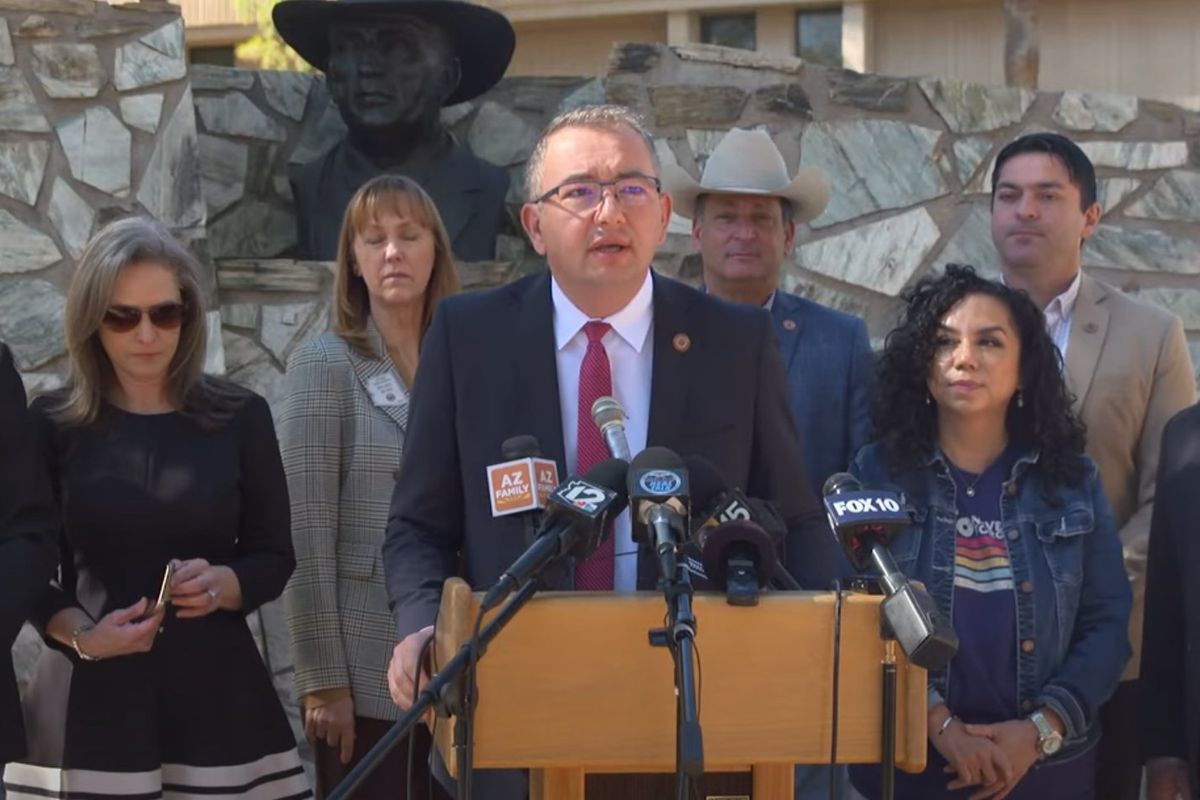We’re having the wrong conversation about recent attempts to restrict voters’ rights in America.
This is not about which political party will be victorious in November.
This is about who we are as a country.
Granted, it’s impossible to ignore who is behind this force for no good whatsoever. Republicans in one state after another are passing laws and issuing dictates to whittle away at the number of citizens who will have the right to vote in this year’s presidential election. They want to impose all sorts of costs and inconveniences on Americans who have never, ever been suspected of voter fraud. Overwhelmingly, these voters tend to be poorer and people of color. Democrats, you might say.
Republicans champion various versions of a 2012 poll tax, even though no reputable study has shown evidence of widespread voter fraud. Curiously, only four states — Alabama, Kansas, Mississippi and Wisconsin — have imposed greater restrictions on absentee voting, which is the one method most vulnerable to fraud.
Why?
Consider the demographics: Absentee voters across the country tend to be older and whiter — just like the Republican Party.
In Ohio, the Republican secretary of state this week broke a partisan tie on the elections board in Cuyahoga County to ban early in-person absentee voting during the last two weekends in October. Cuyahoga is the most Democratic county in the state. As The Plain Dealer reported, an emeritus professor from Case Western Reserve University in Cleveland estimated that in 2008, 93,000 Ohioans voted in person on the Saturday, Sunday or Monday before Election Day. Barack Obama won that state by about 262,000 votes.
Seeing a pattern?
The Obama campaign has sued Ohio Secretary of State Jon Husted and Ohio Attorney General Mike DeWine, also a Republican, in federal court, arguing that these restrictions on balloting violate the U.S. Constitution’s equal protection clause.
Husted says he wants consistency in all 88 Ohio counties but fails to explain why it would be a bad thing to consistently allow as many Ohioans as possible to exercise their right to vote.
Republicans also like to argue that these new restrictions are all about helping economically strained states save money.
Please. By all means, let’s talk about the cost of voting.
If you want to save money, voter registration modernization, or VRM, is the way to do it. Unless they opt out, residents are automatically registered to vote whenever they interact with the bureau of motor vehicles. The states save time and paper, and eligible voters don’t face a boatload of obstacles when they try to vote. Expand these opportunities to any interaction with a government entity and you’ve solved countless voter registration problems.
Fewer than half the states have VRM, even though it would save them hundreds of thousands of dollars a year.
A few examples, provided by the Brennan Center for Justice at New York University School of Law:
–Washington state spent about $280,000 on VRM and introduced online registration. In the first year alone, the secretary of state’s office saved more than $125,000. Counties saved even more.
–Arizona’s online registration costs the state less than $100,000, and motor bureau registrations add only $30,000. In Maricopa County, which includes Phoenix, the savings is irrefutable: The county spends 83 cents processing a paper voter registration form; electronic applications cost 3 cents.
–The tiny state of Delaware carved $200,000 from its election budget after improving its electronic voter registration at departments of motor vehicles.
Finally, we look to Canada, which fully recouped the cost of its VRM system in a single national election.
Wow. What a deal. You’d think every Republican official with a beating heart would be all about VRM — if the idea is to save money and keep people honest, I mean.
Yeah. I know.
So let’s talk about what’s really going on.
Larry Norden is deputy director of the Brennan Center’s Democracy Program. He lives and breathes the issue of voters’ rights. He wishes we in the media would, too.
“The press is too focused on how these restrictions are affecting voter turnout,” Norden said in a phone interview. “It seems to be framed as, ‘Is this a politically smart thing to pass these laws?'”
Wrong question, he said.
“Instead, we should be looking at the morality of these laws. Our country was founded on the principle of all men being equal. We should have equal access to vote.”
He then told the story of an 83-year-old man in a wheelchair in Texas who has voted all of his life and never committed fraud but now must take three buses to wait in line to pay money for a new ID so that he can vote.
“That’s not equal access,” he said. “And it’s not what we stand for as a country.”
He’s got that right.
But it’s the country we’re going to become if the rest of us just sit here and do nothing.
Connie Schultz is a Pulitzer Prize-winning columnist and an essayist for Parade magazine. She is the author of two books, including “…and His Lovely Wife,” which chronicled the successful race of her husband, Sherrod Brown, for the U.S. Senate. To find out more about Connie Schultz (con.schultz@yahoo.com) and read her past columns, please visit the Creators Syndicate Web page at www.creators.com.


